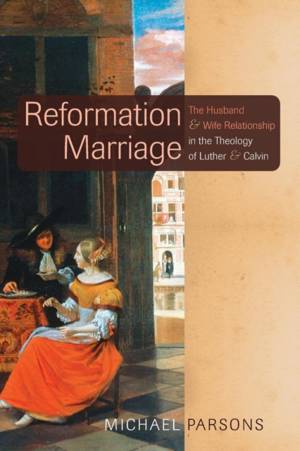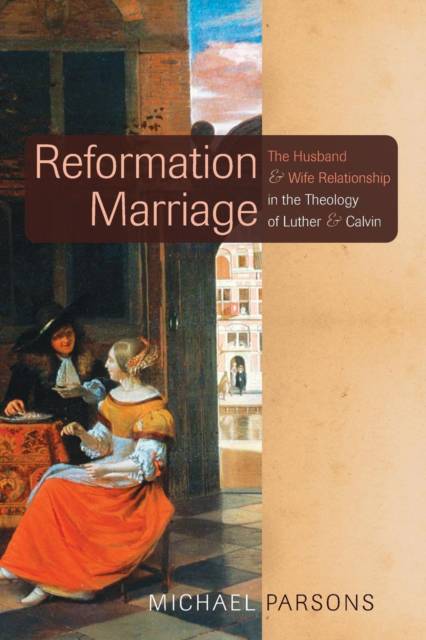
- Retrait gratuit dans votre magasin Club
- 7.000.000 titres dans notre catalogue
- Payer en toute sécurité
- Toujours un magasin près de chez vous
- Retrait gratuit dans votre magasin Club
- 7.000.0000 titres dans notre catalogue
- Payer en toute sécurité
- Toujours un magasin près de chez vous
Description
"" For centuries its critics have argued that the Reformation was all about sex. Beyond the caricature, there is something significant in the observation. The theological revolution which began in Wittenberg and engulfed so much of early modern Europe was not confined to the cloister of the university; it had an immediate and palpable impact on everyday life. Historians such as Steven Ozment have done much to bring this dimension of the Reformation's impact into full view. Michael Parsons' important study, Reformation Marriage, continues this exploration. Aware of appeals made to the teaching of the Reformers by both sides of contemporary debates about gender and relational issues, Dr. Parsons allow us to hear Luther and Calvin for ourselves, locating their comments about family life against the background of medieval teaching on the subject and placing them in the context of each man's wider theological concerns. Here is careful and accessible scholarship that challenges popular misunderstandings about the contribution of the Reformation in this area."" --Mark D. Thompson, Moore Theological College, Sydney, Australia ""In the only book specifically on the subject to date, Michael Parsons investigates the theology of marriage in the writings of Martin Luther and John Calvin, carefully examining a daunting breadth of the Reformers' theological, exegetical, and homiletic works. He concentrates on the role of the wife in the conjugal relationship, but avoids the common polarity between the modern feminist critique of the woman's role in a Christian understanding of marriage and society, and those who simply ignore the gender difference between man and woman. While appreciating the questions raised by the modern liberationist and feminist scholars of the Reformers, Parsons believes they have generally failed to deal with the corpus of the Reformers in a sufficiently nuanced way. On the other hand, unlike some scholars who want to rescue these Reformers from contemporary criticism, Parsons carefully argues from wide primary evidence that neither Luther nor Calvin envisaged modifying the traditional hierarchal structure of marriage or the subordinationist conjugal relationship between man and woman. He refuses to turn the Reformers into pro-twenty-first-century thinkers, much as we might like them to conform more readily to our own contemporary attitudes. His interpretation therefore injects a much-needed dimension of historical realism into the ongoing scholarly debate on the Reformers' social theology."" --Rowan Strong, Murdoch University, Perth, Western Australia Michael Parsons is Commissioning Editor for Paternoster Press and Associate Research Fellow at Spurgeon College, London. Previously, he was Director of Postgraduate Research at Vose Seminary, Perth, Western Australia. He lives with his wife and two children.
Spécifications
Parties prenantes
- Auteur(s) :
- Editeur:
Contenu
- Nombre de pages :
- 402
- Langue:
- Anglais
Caractéristiques
- EAN:
- 9781610976336
- Date de parution :
- 15-09-11
- Format:
- Livre broché
- Format numérique:
- Trade paperback (VS)
- Dimensions :
- 152 mm x 226 mm
- Poids :
- 521 g

Les avis
Nous publions uniquement les avis qui respectent les conditions requises. Consultez nos conditions pour les avis.






